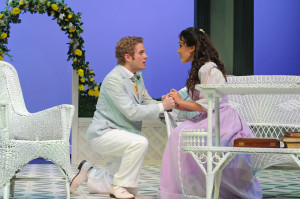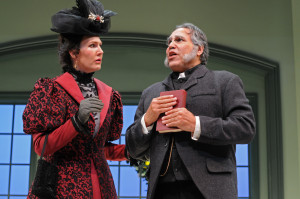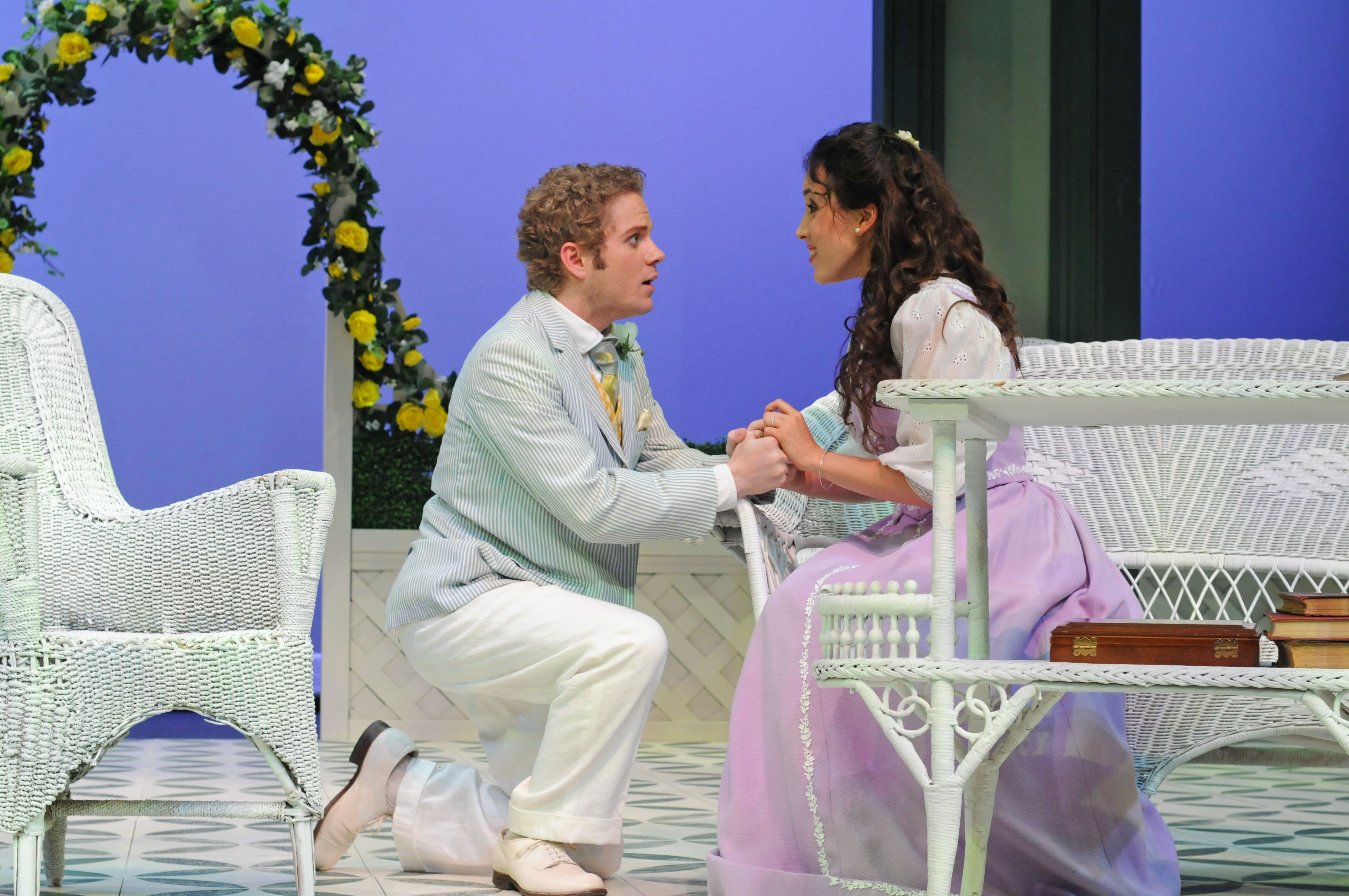
“I do not approve of anything that tampers with natural ignorance,” proclaims Lady Bracknell, offering one of the most scathing social criticisms in “The Importance of Being Earnest” and one that sets the tone for the Stanford Summer Theater’s witty frolic through Oscar Wilde’s London high society. “Ignorance is like a delicate exotic fruit; touch it and the bloom is gone. The whole theory of modern education is radically unsound. Fortunately in England, at any rate, education produces no effect whatsoever.”
“The Importance of Being Earnest,” performed by the Summer Theater under the guidance of director Lynne Soffer, tells the story of two men who create fictional personas in order to escape the constraints of social decorum. Act I introduces the audience to protagonists Algernon Moncrieff (Austin Caldwell ’15) and Jack Worthing (David Raymond ’14), both of whom have invented characters that they pretend they must attend to whenever they wish to avoid a social obligation. Jack’s is an irresponsible brother named Ernest; Algeron’s is a sickly friend named Bunbury. Each man uses his imaginary associate to woo his love interest: Gwendolen Fairfax (Ruth Marks ’13) and Cecily Cardew (Jessica Waldman ’15), respectively. When they each discover the other’s deception, absurd situations ensue.
At face value, the play can appear to be nothing more than a farcical display of witty puns and dialogue — a fact that critics in Wilde’s times pointed out, disparaging its supposed lack of substance. Beyond its comic surface, however, the play satirizes Victorian social conventions, pointing out aristocratic hypocrisy and triviality with glee.

“Earnest” is set in a hyperstylized world where the Victorian aristocracy, in all its self-delusion, is parodied to the point of absurdity. Very little logic can be applied to any character’s actions. As a result, much of the play’s impact relies on the actors and their comic pacing. Lady Bracknell, for instance, is played hilariously by professional Courtney Walsh, whose enormous stage presence and ridiculous dialogue elicited plenty of laughter from the audience. Other professional supporting cast members include Marty Pistone as the sincere Reverend Chasuble, Kay Kostopoulos as governess Miss Prism and Don DeMico in dual roles as two different menservants in varying degrees of physical immobility.
Though the cast is composed of only eight members, the Stanford Summer Theater pulls off Wilde’s script beautifully. The performance breathes life into the original text with wonderful timing. Held in the small but comfortable Pigott Theater, the performance feels intimate – the audience’s proximity to the stage helps one understand the rapid-fire dialogue. In addition, the production exhibits an impressive set with detailed period pieces, as well as excellent costume design.
Although the play was written specifically for 19th-century Britain, Oscar Wilde’s genius continues to resonate with audiences today. Its social criticisms are, in many ways, applicable to our own modern-day culture. “The Importance of Being Earnest” is witty and brilliant, humorous and relevant, and it will surely remain a standard of comedy for playwrights everywhere to aspire to.
